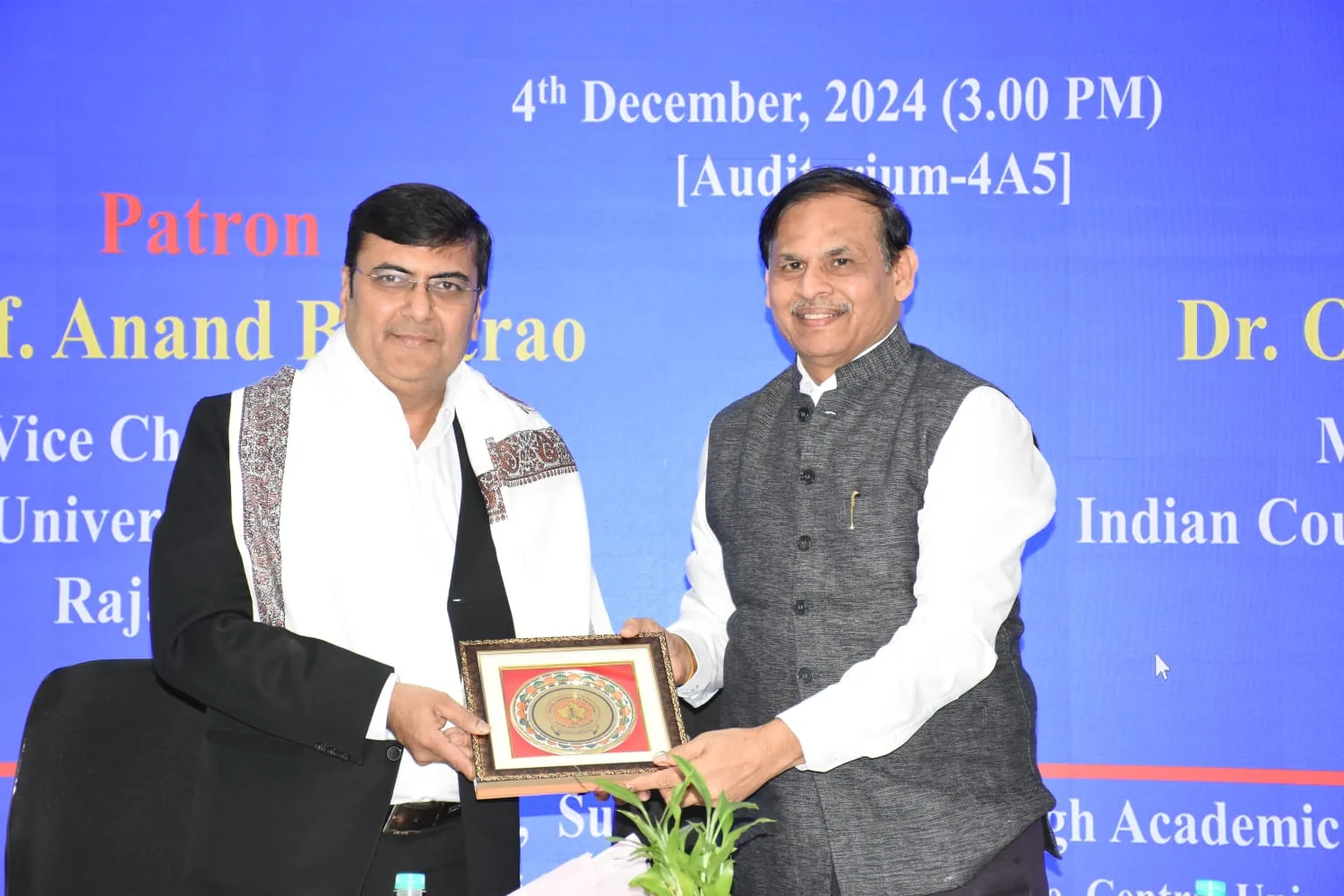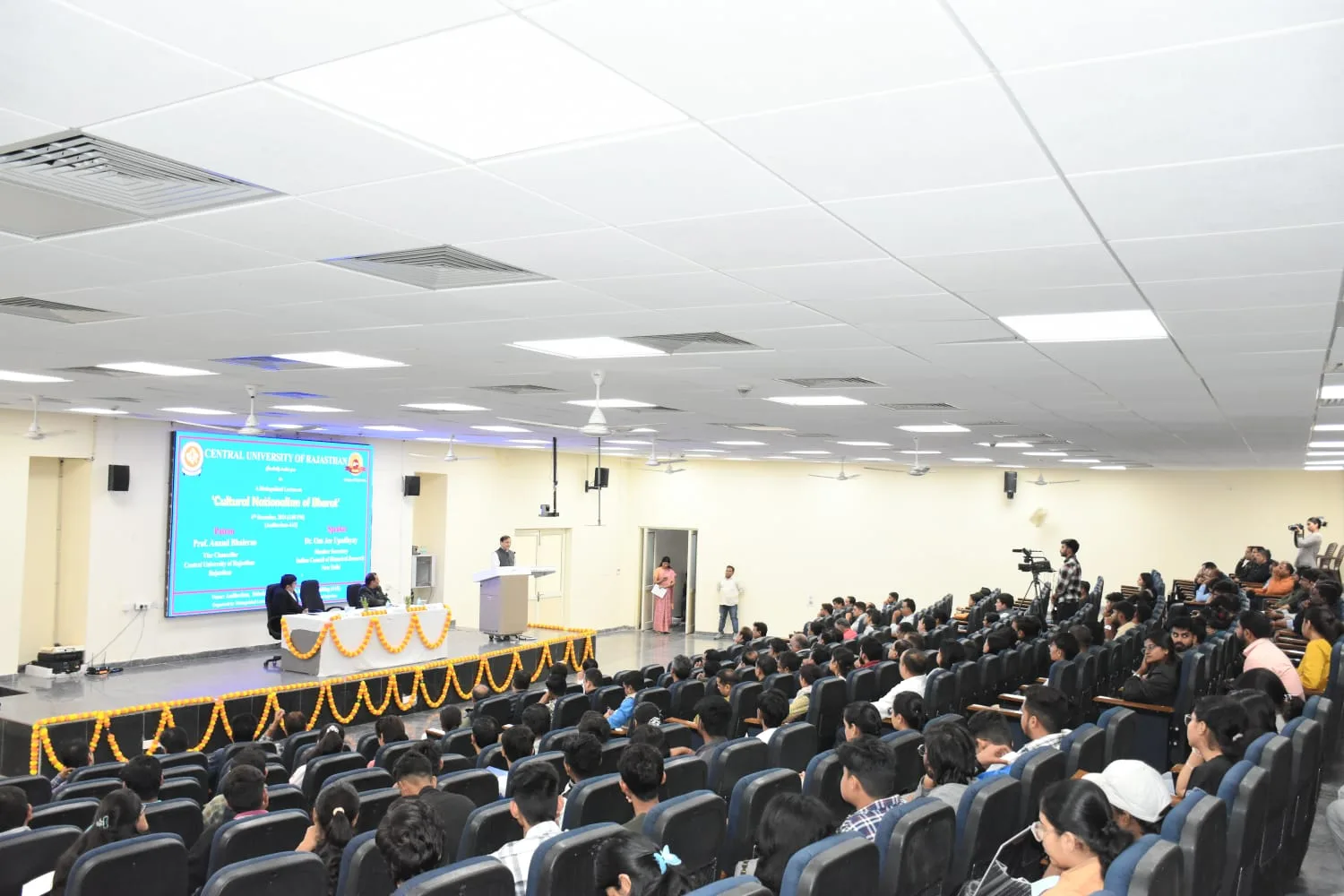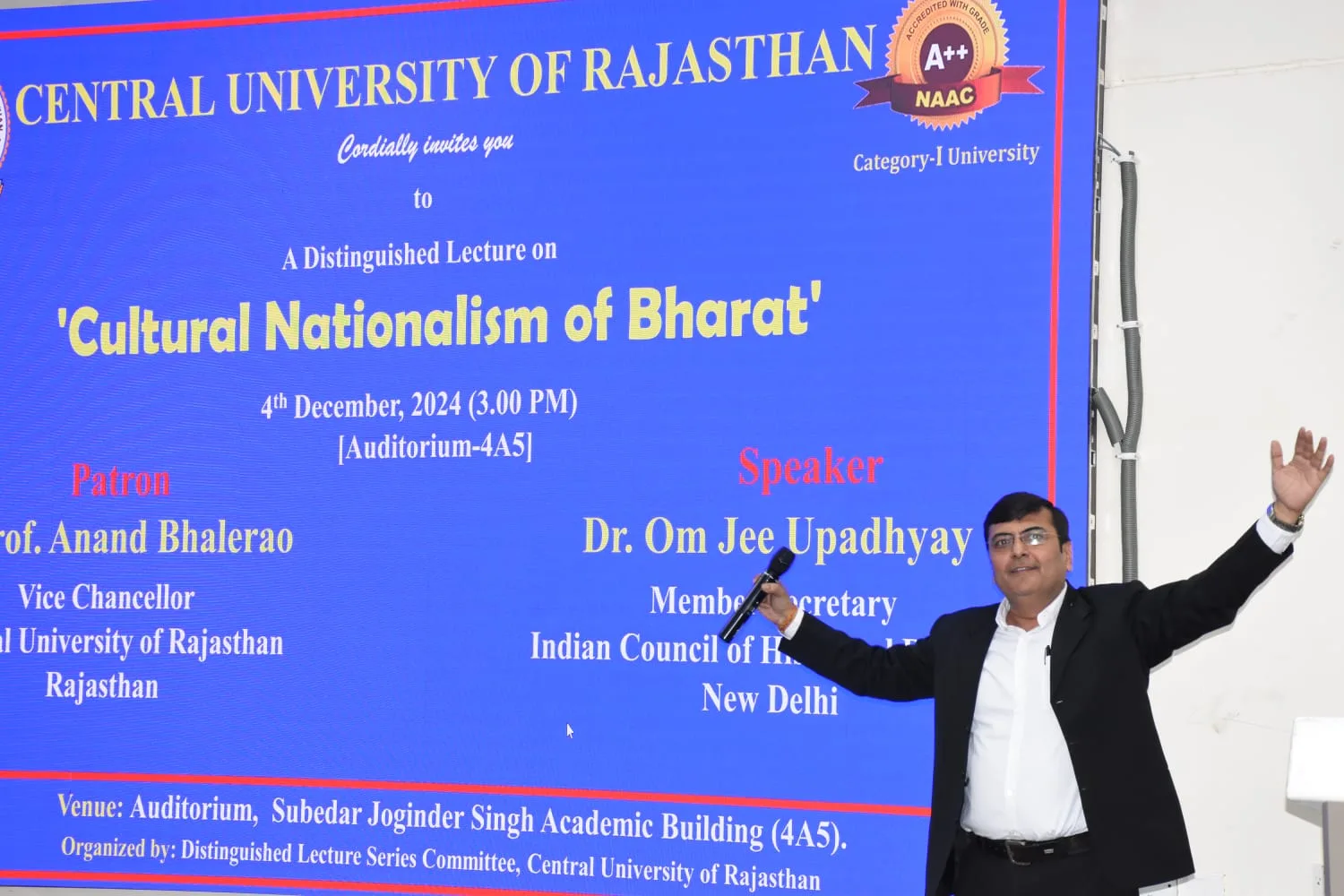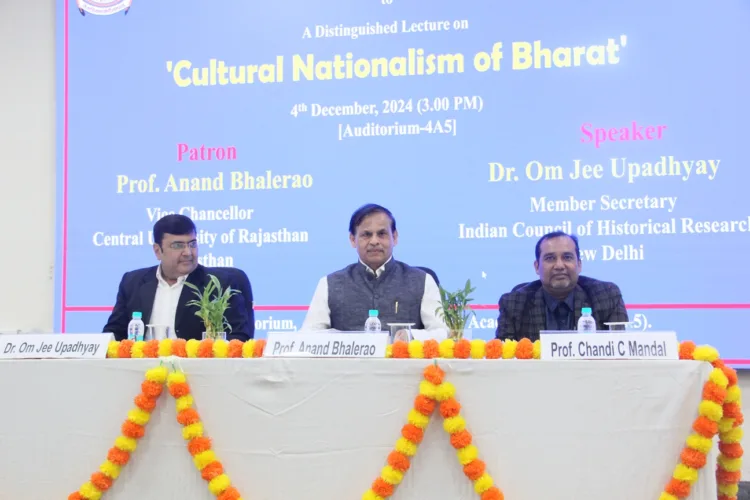On December 5, the Rajasthan Central University organised a special lecture titled ‘Cultural Nationalism of India’. The lecture delves deep into the nuances that distinguish cultural from political nationalism in the Indian context. Dr Om Upadhyay, Member Secretary of the Indian Council of Historical Research (ICHR), New Delhi, was the chief guest and speaker.
Dr. Upadhyay commenced his lecture by distinguishing cultural nationalism from its political counterpart, emphasising the role of shared traditions, spiritual practices, and historical continuity. “Cultural nationalism,” he stated, “acts as a unifying force among India’s diverse linguistic, religious, and regional identities.” He argued that this form of nationalism not only fosters unity but also enriches the national fabric through its deep cultural roots.
Throughout his address, Dr. Upadhyay explored historical epochs that have shaped cultural nationalism in India. He lauded the Gupta period as a golden age where cultural integration and intellectual advancements flourished. He also highlighted the Bhakti movement, which transcended social and regional boundaries, promoting unity through spiritual devotion. Dr. Upadhyay further elaborated on Swami Vivekananda’s contributions, particularly his meditation at Kanyakumari, illustrating the symbolic unity of India from north to south.

The lecture extended into literary influences, with Dr. Upadhyay citing Bankim Chandra Chatterjee’s “Anandamath” as a pivotal text in stirring cultural pride through the iconic figure of Bharat Mata. He also ventured into India’s cultural outreach, discussing the profound influence of the Ramayana across Southeast Asia, and noted cultural exchanges with countries like Cambodia and South Korea, where Queen Heo Hwang-ok is believed to have originated from Ayodhya.
Dr. Upadhyay drew comparisons with Western intellectual history, contrasting the open cultural and intellectual traditions of India with the suppression faced by thinkers like Galileo and Bruno in Europe. He also celebrated the historical roles of Indian women, mentioning figures like Rani Durgavati and Rani Lakshmibai, underscoring their significance in shaping cultural narratives.

The need for preservation and propagation of India’s cultural heritage was a focal point of his discourse. He called for an active role by institutions like ICHR in documenting and promoting India’s rich historical tapestry. He suggested integrating more cultural content into educational curricula through collaboration with boards like NCERT and CBSE and encouraged further research into the lesser-known cultural practices of tribal and rural India.
The event was inaugurated by Prof. Anand Bhalerao, Vice Chancellor of Rajasthan Central University, who underscored the importance of cultural nationalism in a globalised world, emphasising the role of the mother tongue and the dynamic concepts of nationalism.

The lecture attracted a wide audience including teachers, researchers, and students, who engaged actively during the Q&A session. Questions revolved around the historical inclusivity of ancient India and the practical steps taken by ICHR to make primary sources of Indian history accessible. Dr. Upadhyay responded by detailing ICHR’s efforts to compile a comprehensive anthology of primary historical sources.
The session concluded with a vote of thanks from Prof. C.C. Mandal, Chairman of the Academic Leadership Development Program, who lauded Dr. Upadhyay’s insights and thanked all participants for contributing to the success of the event.
This lecture not only educated but also sparked a renewed interest in the cultural dimensions of Indian nationalism, encouraging further academic exploration and appreciation of India’s deep cultural heritage.



















Comments